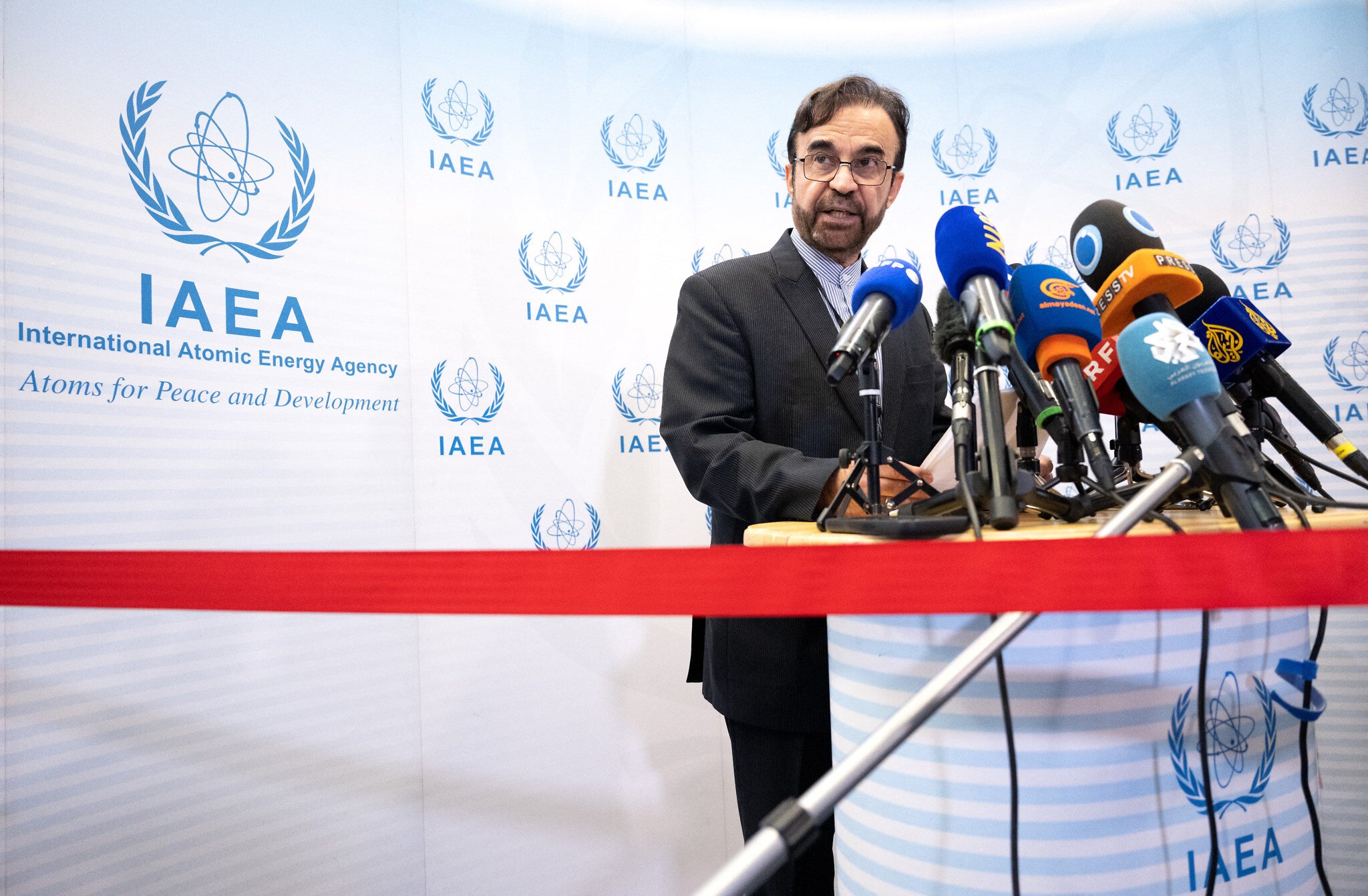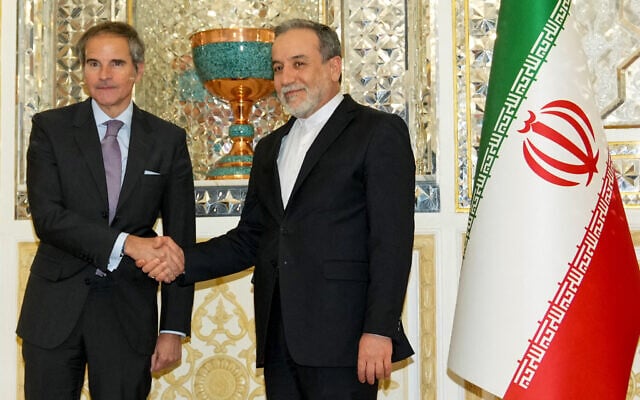



The Iranian body tasked with vetting legislation approved a bill that would suspend cooperation with the United Nations nuclear watchdog on Thursday, citing the recent Israeli and US strikes on its nuclear facilities.
Iranian lawmakers voted in favor of the bill on Wednesday, the day after a ceasefire ended a 12-day war launched by Israel in order to prevent its longtime enemy from developing a nuclear weapon.
Since the start of the war on June 13, Iranian officials have sharply criticized the International Atomic Energy Agency (IAEA) for failing to condemn the attacks on its nuclear facilities.
Iran has also criticized the agency for passing a resolution on June 13, hours before Israel launched its offensive, accusing Tehran of noncompliance with its nuclear obligations.
Iranian officials claimed the censure motion, and the IAEA report that prompted it, was “one of the main excuses” for the Israeli and US attacks — a charge the head of the agency, Rafael Grossi, rejected.
“The government is required to suspend all cooperation with the [International Atomic Energy Agency] to ensure full respect for the national sovereignty and territorial integrity of the Islamic Republic of Iran,” Guardian Council spokesman Hadi Tahan Nazif told the official IRNA news agency.
He said the move was prompted by the attacks “by the Zionist regime and the United States against peaceful nuclear facilities.”
Iran has long insisted its nuclear program is peaceful, though it is the only non-nuclear-armed state to enrich uranium up to 60 percent, a short, technical step away from weapons-grade levels of 90%.
The bill, which passed in the Iranian parliament on Wednesday with 221 votes in favor and one abstention, will now be submitted to President Masoud Pezeshkian for final ratification.
Once passed, the bill will allow Iran “to benefit from all the entitlements specified under… the Non-Proliferation Treaty, especially with regard to uranium enrichment,” Nazif said.
The IAEA said, however, that as of Thursday afternoon, it had not received an official communication from Iran about the approved parliamentary bill to suspend cooperation.
“We are aware of these reports. As of now, the IAEA has not received an official communication from Iran on this matter,” the agency said in a statement.
Key Tehran ally Moscow had earlier spoken out against the move to suspend cooperation with the IAEA.
“We are interested in continuing cooperation between Iran and the IAEA, so that everybody respects Iran’s repeated statements that Iran does not have and will not have plans to develop a nuclear weapon,” Russian Foreign Minister Sergei Lavrov told a news conference.
Iranian Parliament speaker Mohammad Bagher Ghalibaf said in a post on X that cooperation with the watchdog was “not possible” at this time until security at Iran’s nuclear facilities “is ensured.”
In an interview with Qatar’s Al-Araby Al-Jadeed on Tuesday, Foreign Minister Abbas Araghchi said: “I think that our view on our nuclear program and the non-proliferation regime will witness changes, but it is not possible to say in what direction.”
Israel and Iran entered into open conflict on June 13 when Israel launched airstrikes targeting Iran’s top military leaders, nuclear scientists, uranium enrichment sites, and ballistic missile program. Israel said the campaign was necessary to prevent the Islamic Republic from realizing its declared plan to destroy the Jewish state. On June 22, the US struck key Iranian nuclear facilities at Natanz, Fordo and Isfahan.
Iran retaliated against Israel’s attacks by launching over 550 ballistic missiles and around 1,000 drones at Israel. Iran’s missile attacks killed 28 people and wounded thousands in Israel, according to health officials and hospitals. Missiles hit apartment buildings, universities and a hospital, causing heavy damage. Iran also fired at a US base in Qatar after the American strikes.
Reuters contributed to this report.

